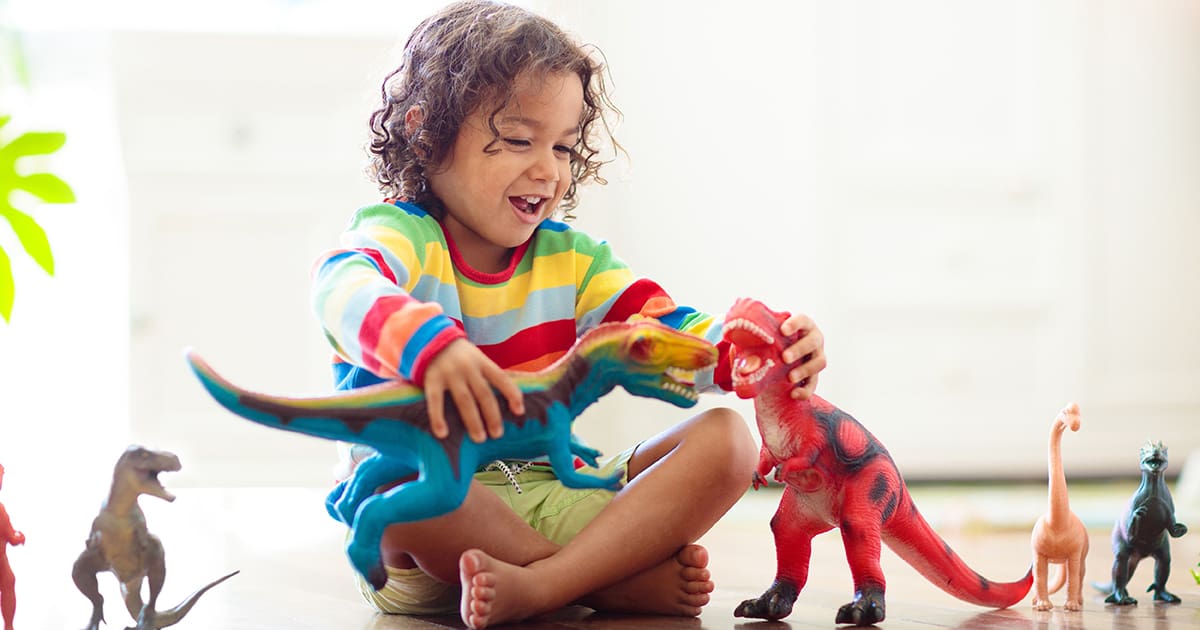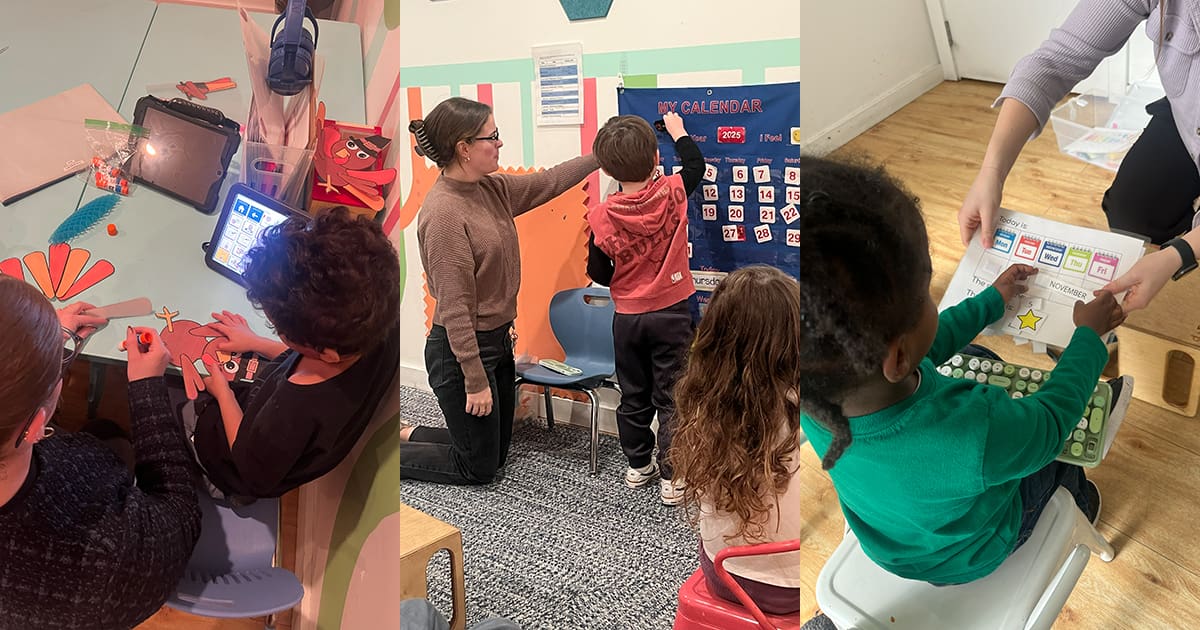Share this Post

Toy play is a universal language of childhood, offering children a way to explore their world, build skills, and connect with others. For children with autism, toy play can be a gateway to developing social, communication, and motor skills in a fun and engaging way. However, children with autism may approach play differently, requiring individualized support to fully benefit from this critical aspect of development.
At CST Academy, we embrace the importance of toy play in our therapeutic preschool programs. By using evidence-based strategies, tailored interventions, and a compassionate approach, our team helps children with autism unlock the potential of play to enhance their growth, confidence, and joy.
Why Toy Play Matters for Children with Autism
Toy play isn’t just about fun—it’s a vital part of childhood development. Through play, children learn to explore their environment, solve problems, and build relationships. Here’s why toy play is particularly important for children with autism:
- Building Communication Skills: Toy play offers opportunities for children to practice verbal and nonverbal communication, such as naming objects, taking turns, or using gestures to request or share.
- Developing Social Interaction: Engaging in play with peers or caregivers helps children practice social skills like sharing, collaboration, and responding to others’ cues.
- Enhancing Motor Skills: Activities like stacking blocks, manipulating action figures, or fitting puzzle pieces together improve fine and gross motor skills.
- Fostering Creativity and Imagination: Pretend play, such as hosting a tea party or building a castle, encourages creative thinking and cognitive development.
- Promoting Emotional Regulation: Play provides a safe space for children to express their emotions, explore new ideas, and practice coping strategies in a supportive setting.
While many children with autism enjoy playing with toys, they may face challenges such as limited interest in specific types of play, difficulty understanding social play dynamics, or sensory sensitivities. With the right guidance, toy play can become a powerful tool for learning and connection.
How CST Academy Supports Toy Play for Children with Autism
At CST Academy, toy play is an integral part of our therapeutic approach. Our experienced therapists use toys strategically to promote learning, skill development, and engagement in ways that are tailored to each child’s unique needs. Here’s how we incorporate toy play into our programs:
- Individualized Play Plans
Every child is different, and so is their approach to play. We assess each child’s interests, strengths, and developmental goals to create personalized play plans that foster engagement and growth. - Structured and Free Play Opportunities
Our programs balance structured play activities, guided by therapists, with free play sessions that allow children to explore and experiment with toys independently or with peers. - Therapist-Guided Social Play
In group settings, our therapists facilitate peer interactions during playtime, teaching children how to take turns, share, and communicate while playing with toys. - Focus on Sensory Preferences
For children with sensory sensitivities, we offer a variety of toys with different textures, sounds, and movements to ensure a comfortable and enjoyable play experience. - Integration Across Disciplines
Our multidisciplinary team of speech therapists, occupational therapists, and behavioral specialists collaborates to use toy play as a tool for achieving developmental goals across multiple areas. - Parent Involvement
We partner with parents to extend the benefits of toy play into the home. Our therapists provide guidance on selecting toys, creating play routines, and encouraging skill development during family playtime.
The Role of Toys in Different Types of Play
Different types of toy play help children develop a range of skills. At CST Academy, we incorporate a variety of play activities, including:
- Exploratory Play: Encourages sensory exploration and understanding of cause and effect. Example: Playing with sensory bins or musical toys.
- Constructive Play: Promotes problem-solving and fine motor development. Example: Building with blocks or assembling puzzles.
- Pretend Play: Enhances creativity, social skills, and language development. Example: Playing with toy kitchens, dolls, or costumes.
- Interactive Play: Focuses on collaboration and social interaction. Example: Playing board games or engaging in group activities with peers.
- Physical Play: Supports gross motor skills and sensory regulation. Example: Pushing toy cars, tossing beanbags, or using a balance board.
Tips for Encouraging Toy Play at Home
Parents can play an active role in supporting their child’s development through toy play. Here are some ideas to try at home:
- Follow Your Child’s Lead: Start with toys your child already enjoys, and gradually introduce new toys or activities that build on their interests.
- Keep It Simple: Offer toys that are easy to use and age-appropriate, such as stacking rings, sensory balls, or toy animals.
- Model Play Behaviors: Demonstrate how to use toys by showing your child actions like stacking blocks, pretending to feed a doll, or rolling a car.
- Encourage Social Play: Invite siblings or peers to join playtime, teaching your child how to take turns, share, and engage with others.
- Celebrate Progress: Praise your child for their efforts during play, whether they’re trying a new toy, engaging with a peer, or practicing a skill.
Why Families Choose CST Academy
Families trust CST Academy to support their child’s development through play because of our:
- Expert Team: Our therapists are trained in evidence-based approaches to toy play and child development.
- Tailored Programs: Every therapy plan is designed to meet each child’s specific needs and goals.
- Inclusive Environment: We provide a safe, sensory-friendly space where children can explore and grow through play.
- Collaborative Approach: We partner with parents to ensure progress continues at home and in the community.
A Parent’s Perspective on Toy Play Success
One parent shared their experience:
“Before joining CST Academy, our child didn’t show much interest in toys or playing with others. The therapists introduced new ways to engage, and now our child loves building towers, pretending to cook, and playing with friends. Toy play has truly transformed our family’s experience.”
Take the Next Step with CST Academy
Toy play is more than just fun—it’s a pathway to growth, learning, and connection. At CST Academy, we’re committed to helping children with autism unlock their potential through the power of play.
Contact us today to learn more about our programs and how toy play can support your child’s development. Together, we’ll create a brighter future filled with learning, laughter, and joy.
Discover Our Pediatric Therapy & Autism Care
ABA Therapy
Support for children with autism.
Autism Evaluation
Expert assessments to identify child needs.
Pediatric Therapy Services
Speech, Occupational, Feeding, and Physical Therapy.
Therapeutic Preschool
A classroom environment designed for early learners with unique needs.

Find the Best Care for Your Child




